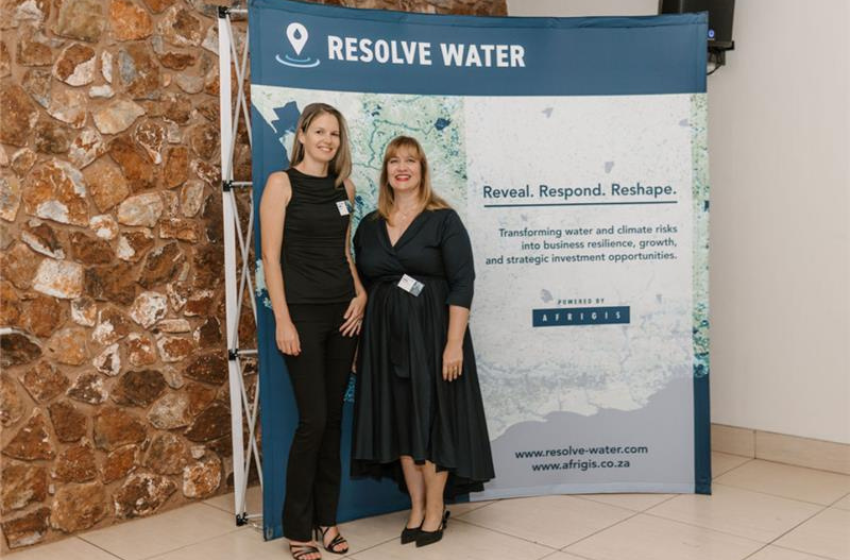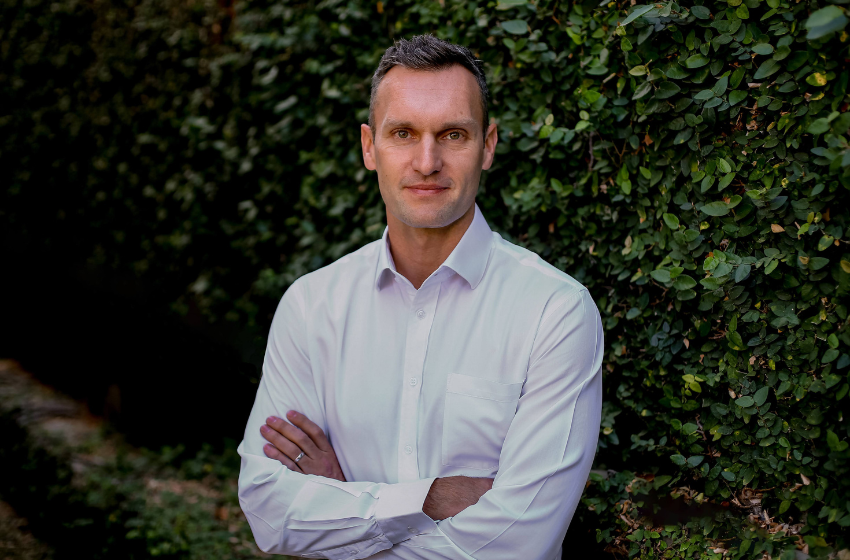
As climate change accelerates, Africa is under increasing pressure to adapt — not in theory, but in practice. While carbon risk is global and often abstract, water risk is immediate, measurable, and profoundly local. In fact, water is the frontline of climate change in Africa — and the private sector is more exposed than most realise, writes Helen Hulett, Chief Sustainability Officer for AfriGIS.
Across South Africa and the broader continent, water challenges are intensifying: catchment-level scarcity, deteriorating quality, and the collapse of key service providers. These issues are already constraining productivity, inflating operating costs, and threatening the long-term viability of critical sectors like agriculture, manufacturing, and mining.
For financiers, insurers, and corporates, the implications are serious. Credit risk is rising. ESG liabilities are growing. And long-term investments are increasingly vulnerable to environmental and regulatory shocks. Yet water — unlike carbon — remains largely invisible in risk models and boardroom conversations.
Why Water Demands a Different Approach
Water risk is fundamentally different from other climate-related risks. It’s not generalised — it’s geographically specific. Two identical facilities located in different regions can experience drastically different water futures based purely on location, upstream water usage, or infrastructure reliability. This geographical specificity means water risk is more difficult to benchmark, but also more actionable when approached with the right data.
This is where a new model of understanding water risk is critical. Until now, water risk data has been siloed, fragmented, and hard to access in a way that is useful for decision-makers. For companies, investors, and insurers, better data means better decisions.
With better data, companies can begin to make more informed choices about where to locate operations, which suppliers to partner with, and how to structure investments. It’s about moving beyond assumptions and embracing actionable, location-specific data that gives clarity on water availability, quality, and future risks.

Africa’s Future Lies in Water Adaptation, Not Just Mitigation
Adaptation is Africa’s most pressing climate challenge. While much of the global finance community has focused on carbon emissions reduction, Africa’s immediate priority must be adapting to water stress. Without addressing water risks, the continent faces an increasingly unstable future: defaulting loans, stranded assets, and potential social unrest. The cost of inaction will far outweigh the investment needed to address water risks.
The need for water resilience is not a niche concern—it’s a strategic imperative. As businesses, investors, and governments work to build sustainable futures, integrating water risk into decision-making will become essential. This is integral to ensuring the long-term viability of businesses and the well-being of communities that rely on water for survival.
What Adaptation Looks Like
Businesses need to move from risk to resilience, building strategies that account for water availability, quality, and infrastructure vulnerability. But how can they do this? By integrating water risk into their broader environmental, social, and governance (ESG) strategies, businesses can not only protect their operations but also unlock growth opportunities.
To create a framework for resilience, businesses need access to high-quality, geospatial data that offers transparency into local water risks. This data should be integrated into all aspects of decision-making—from credit assessments to supply chain planning and environmental compliance.
Financial institutions, for instance, must begin adjusting lending criteria based on water stress in the regions where their clients operate. Insurers should develop more accurate models that factor in water-related risks when underwriting policies. And corporates must work collaboratively to protect water resources across their supply chains.
The platform for such transformation already exists in the form of geospatial intelligence and satellite data, tools that can track water availability and quality in real time. But the key is using this data in a way that translates into actionable insights—helping businesses and governments make informed, location-specific decisions.

The Competitive Edge of Water Resilience
As global regulatory frameworks tighten around climate and nature-related risks, the ability to manage water risk will become a key differentiator. Investors are already scrutinising their portfolios for exposure to water-stressed regions, and many are diverting capital away from high-risk areas. Companies that fail to adapt could find themselves sidelined as the world shifts toward a more water-resilient future.
On the other hand, early movers will gain a competitive advantage. By integrating water risk into business strategy and finance, companies can position themselves as leaders in sustainable development. This could lead to better access to financing, improved ESG ratings, and ultimately, greater long-term profitability.
The growing focus on water resilience offers a unique opportunity for African businesses to lead the way in adapting to climate change. By integrating water into risk models and developing strategies for adaptation, businesses can future-proof their operations, mitigate risk, and create long-term value for their stakeholders.
Africa’s water crisis is an urgent challenge, but it is not an insurmountable one. With the right data, strategic foresight, and collaborative effort, the continent can build a more water-resilient future. By addressing water risk head-on, we can unlock new opportunities for growth, investment, and sustainable development across Africa.
Water is not just a challenge—it’s an opportunity to create resilient, future-proof economies. And it’s time to start acting on it.
Resolve Water is here to help Africa rise to both the challenge and the opportunity.
More info: www.resolve-water.com
Share via:



















